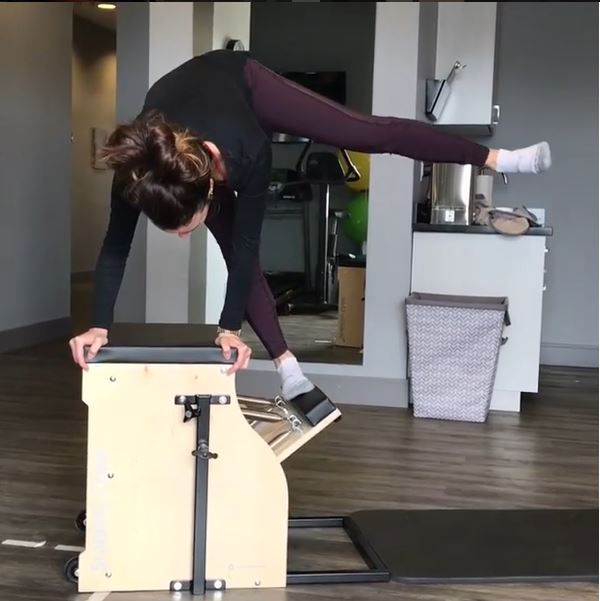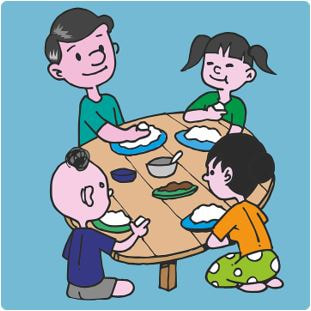|
Melissa Gaudreau, STOTT Pilates Instructor and founder of Pilates Vitality and Wellness As we age, our physical strength, bone density, and cognitive abilities decline. This in turn deteriorates our sense of balance and we take longer to recover from falls. With age and inactivity, the unconscious processes in your brain that are responsible for balance may not integrate as well or as quickly as they used to, resulting in a fall. To reduce the risk of falling, you can slow the process of deteriorating balance with Pilates exercise. Pilates focuses primarily on strengthening deep internal muscles of the abdomen, lower back, and hips, often referred to as the “powerhouse”. The largest benefit of Pilates is developing a strong core; the most important thing aiding in mobility and balance. Whether you are practicing Pilates on the mat or with equipment, your balance will be challenged on a scale from moderate to high based on your current ability to perform the exercise. A recent systematic review published in the British Journal of Sports Medicine aimed to investigate this very topic – What is the effect of Pilates on balance and falls in older adults? In this review, six studies were included that investigated a Pilates exercise intervention and also reported a measure of balance or falls. The Pilates interventions in the included studies compared a group that participated in Pilates for at least 2 hours per week over a period of 5-24 weeks to a control group that did not participate in Pilates. Based on the combined results from these studies, this review indicates that there is a significant improvement in balance among older adults who participate in Pilates. Only one of the six studies reported data on falls, but they also found a significant reduction in the number of falls among older adults who participated in the Pilates intervention. Although these results look promising, there were some study limitations. More higher quality research is needed in this area to provide stronger evidence on the effect of Pilates on balance and falls. To bring a real-life perspective to this research, I would like to share a common statement that I often hear from my elderly clients: “I just realized how good my balance is in comparison to the majority of my friends who cannot put their shoes on while standing.” This is just one of the many real life examples that show the benefits of Pilates – there are many more ways to improve the quality of your daily life through Pilates exercise. Pilates doesn't just improve balance in the elderly, it can increase balance in everyone, including younger individuals and athletes, and therefore, Pilates is recommended for everyone. Pilates truly is a life-changing movement.
0 Comments
Stephanie MacNeill, RD If you're a child of the 90's, or raised children in the 90's, a purple dinosaur probably taught you that 'sharing is caring'. Although he may have been talking about sharing toys, there's something to be said about sharing meals too. To say that Canadians are busy people may be an understatement. When it feels like time is scarce, it can be difficult to make time to connect with family or friends to share a meal. Roughly one-quarter to one-third of families never or seldom eat together as a family. But it's important to share meals. It allows people to connect, share traditions, learn, communicate, listen, and it also helps us eat a more balanced diet. Sharing meals is an enriching experience for people of all ages-from children to older adults. The biggest barriers to eating together are busy schedules like work and evening activities. Balancing a busy schedule certainly takes a little bit of creativity, but everyone benefits when you make the effort to eat in the company of others!
Now, whether out to dinner with friends or at home around the table with family, we have all experienced phubbing. What is that you might ask? Phone snubbing, it's when someone ignores their real-life companions in favour of their phones or other devices. A 2015 study found that 46.3% of participants experienced this regularly from their loved ones. As addicting as phones may be, it is possible to have a fun dinner with friends and family without anyone using their devices...I promise! If you've exhausted all your usual topics of conversation and caught up on each other's days, a well-worded question can go a long way. Try and ask questions that require more than a simple 'yes' or 'no' answer.
Sharing a family meal doesn't have to only mean dinner! If you have hectic evenings, share breakfast meals instead, or have brunch together on the weekends. Most studies done on the benefits of family meals suggest starting with at least four meals together each week. They all count! |
Physio Sport Med
Serving all of Oakville in the Uptown / Dundas-Trafalgar Core. Archives
May 2025
Categories |
- Info
- Book Now
-
Team
-
How We Treat
- Sport Medicine Consultation
- Manual - Exercise Physio
- Sport Physiotherapy
- Tissue Injections
- Acupuncture
- Vestibular Physiotherapy
- Osteopathy
- Chiropractic Care
- Concussion Program
- Shockwave Therapy
- Female Pelvic Health
- Male Pelvic Health
- Registered Massage Therapy
- Nutrition Consultation
- On-Field Therapy Coverage
- Custom Orthotics
-
What We Treat
- Sports Injuries
- Low Back Pain
- Osteoarthritis
- Motor Vehicle Accident
- Sprains
- Muscle Strains
- Concussion
- Rotator Cuff
- Tendonitis
- Neck Pain and Headaches
- Hip Pain
- Shoulder Pain
- Elbow, Wrist and Hand Pain
- Foot and Ankle Pain
- Post Surgical Rehabilitation
- Gait and Balance Disorders
- Knee Injuries
- Pelvic Floor Conditions
- Blog



 RSS Feed
RSS Feed